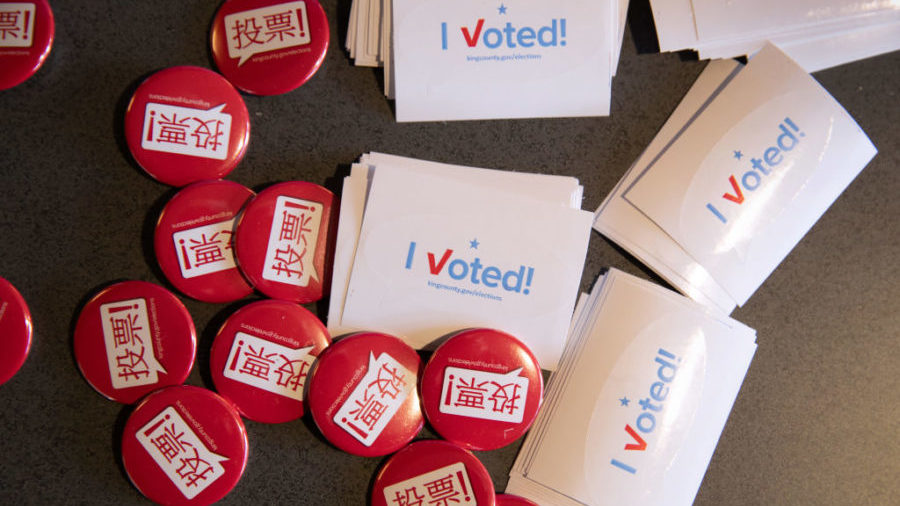Group seeking to change how Seattle voting works builds large early war chest
Jan 23, 2022, 8:00 AM | Updated: Jan 24, 2022, 7:19 am

Voting pins and stickers lie next to a ballot box at the King County Elections processing center in Renton, Washington. (Photo by John Moore/Getty Images)
(Photo by John Moore/Getty Images)
A push to dramatically alter the way Seattle votes in primary elections is already getting significant financial support, having taken in nearly $193,000 in contributions over the last three months.
With deadlines looming, King County hits pause on push for ranked choice voting
In a standard Seattle primary, voters select one candidate in each race. But a group known as Seattle Approves wants to change that with a method known as “approval voting,” which would allow someone to vote for as many candidates as they want.
Proponents argue that it makes for a system that better represents what people want in any given election, particularly in races where more moderate candidates are jockeying for position among opponents with flashier, more extreme messaging. The end result, they argue, is slate of candidates that each have to appeal to a wider base of voters.
“Councilmembers can win their primary elections with 25% of the vote, maybe 30%,” Seattle Approves Co-Founder Logan Bower told KTTH’s Jason Rantz Show last December. “They only need a tiny base in the city to get through the primary election.”
“Under approval voting, that just doesn’t cut it anymore,” he added. “When you can get support from multiple constituencies, you might need need 60% approval to clear a primary.”
Seattle Approves hopes to put the decision over whether to adopt the new method to voters in this November’s election with a ballot initiative. With signature-gathering efforts having yet to begin in earnest, the group has already gathered a sizable war chest. That’s buoyed by a series of donations from the California-based Center for Election Science (CES), totaling over $165,000.
King County district to use one-of-a-kind smartphone voting for third year
The push for approval voting in Seattle is prominently featured on the CES website as well, with the organization currently displaying a banner at the top of its homepage describing the city as “the new frontier for approval voting.”
CES functions as a nonprofit think tank that funds “grassroots groups” in cities across the United States to build local-level support for approval voting.
“The end goal is for chapters to build support in their communities and eventually launch their own ballot initiative campaigns or successfully lobby their local governments to implement approval voting,” the CES website states.
Seattle Approves will need to gather over 26,000 verified signatures over a 180-day period in order to get its proposal on the ballot.












